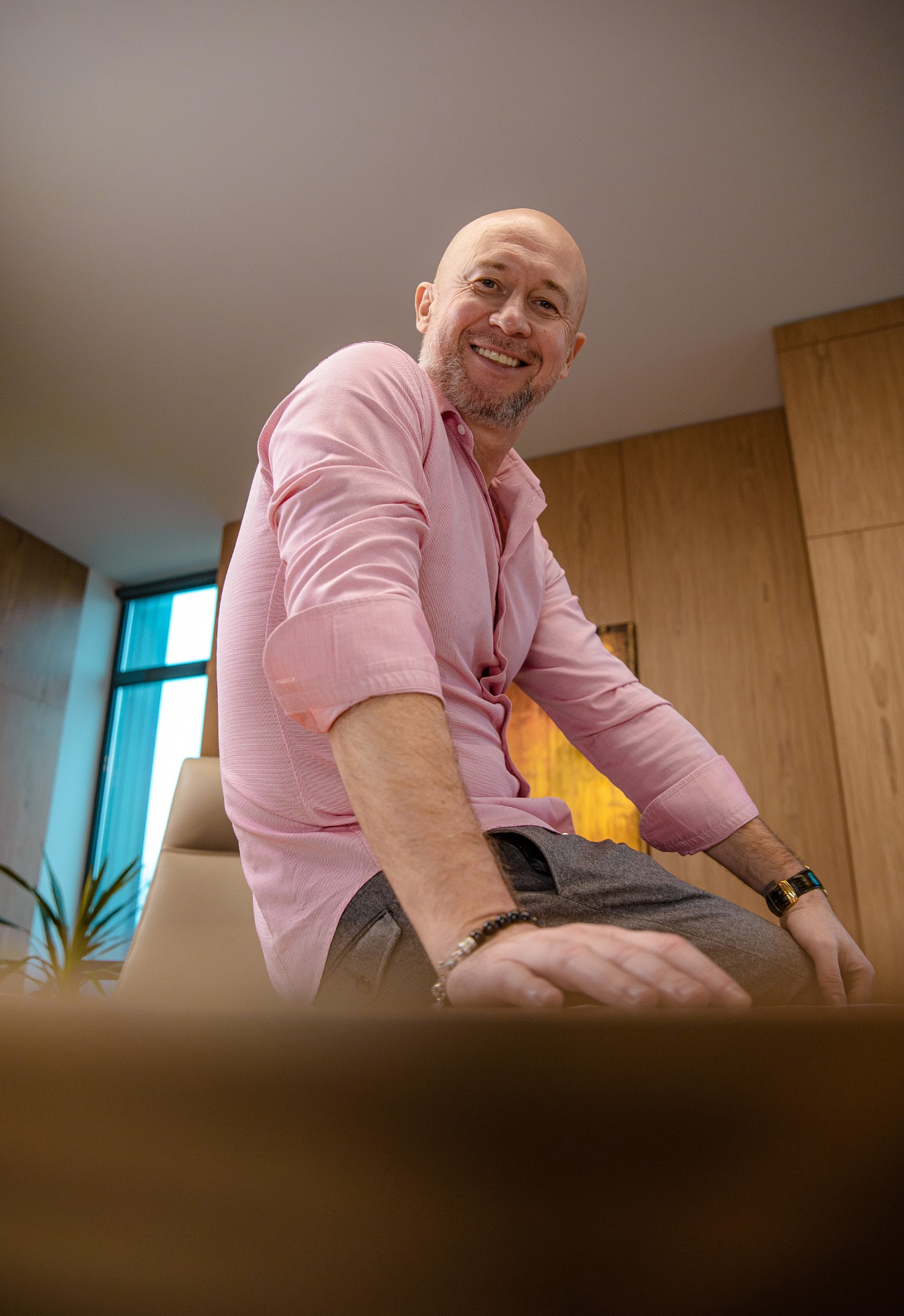CAN BURNOUT BE BENEFICIAL

An active, energetic, and goal-oriented person is destined to experience burnout. The expenditure of energy, living at a high pace, and the need to make important decisions have a downside—and that is burnout. It is triggered not only by subjective reasons such as internal exhaustion but also by objective ones, such as a crisis or hypercrisis—like war.
Alexander Suvorov, a businessman, founder of Pet Technologies, and author of the books "The System of Happiness" and "Fasting for Happiness," shares his experience.
I started building my company in the 1990s, went through all the crises of the 2000s, and I am well acquainted with this state. Having experienced and overcome burnout in my time, I gained much more than I had before. The path was not easy, but it was very fulfilling. Its main stages could serve as a good guide to overcoming burnout.
Make a Radical Change in Your Life
It is crucial to break free from the cycle of routine. Doing the same tasks day in and day out leaves no room for anything new. Without this space, it is impossible to overcome burnout. I have been in business for over thirty years, and it was only a little over four years ago that I stepped down from operational management of the company. Before that, I was deeply involved in the processes.
We burn out not only from fatigue but also from monotony. Processes continue, but overall, nothing new happens. For an energetic person, this is especially frightening because the energy that was once actively directed toward achieving ambitious goals now (at best) stagnates, and at worst, starts to harm the company. The solution is to redirect this energy in a different direction, after leaving your comfort zone. In my experience, after stepping down from operational management, I moved from Chernihiv, where my company's factory is located, to Kyiv. A change of residence in itself effectively reboots you.
Recognize Your Condition and Don't Feel Guilty About It
I burned out when my business reached its peak. Things were going well, but there was a growing dissatisfaction that was difficult to explain. This state is dangerous: a person becomes withdrawn and feels guilty for being bored when they should be enjoying life.
Burnout is like an illness without clear symptoms. It's a state where it feels like a weight is tied to your leg—gloomy and sluggish. Burnout is neither a physical disease nor grief. It's easy to get used to it, and that's frightening because a person risks being stuck in this "mess" for a long time. Personally, I realized that I was burned out only when I began to come out of it.
For an entrepreneur deeply immersed in business processes, it's especially difficult. We are used to thinking: if you're tired, you need to rest. But burnout is much more than ordinary fatigue. It isn't cured by travel, vacations, shopping, or even new achievements in business; none of these add enough drive to overcome burnout.
You need to name the enemy: acknowledge that you are burned out and bring this state to a conscious level. Then, stop beating yourself up and feeling guilty about it. After that, give yourself over to it completely and let yourself suffer thoroughly. It's best to let this crap out—onto paper, for instance. That's what I did—I wrote down my thoughts. From that time, I have accumulated many scattered notes—in a notebook, on scraps of napkins, on my phone. Eventually, some of these notes formed the basis of my books.
Cleaning Up
There is a popular exercise: divide a sheet of paper into two columns. In one column, write down the activities that give you energy, and in the other, those that drain it. Through this exercise, I discovered that cleaning gives me energy. Interestingly, right when I realized this, I came across the book "The Life-Changing Magic of Tidying Up" by Japanese author Marie Kondo, who developed her own system of tidying and became very popular. An effective way to get out of depression is to start putting things in order in your home, at work, in your life, body, and mind. Perhaps during this process, you will understand what and how to do next and with whom to interact.
Taking inventory of your surroundings is one component of the "global cleanup" in life. Identify which people drain your energy and think about how to minimize interactions with them. Instead, form a new environment consisting of people with whom you can grow. The right environment means giving and receiving energy in equal proportions.
This is more or less clear, but how do you "clean up" your body and mind? For myself, I found a very effective way – two or three times a year, I abstain from food for ten days. I call this a 10-day conscious preventive fasting. I described my over nine-year experience in one of my books, "Fasting for Happiness: The Diary of a Millionaire Who Fasts." I am convinced that fasting is the most natural way to cleanse the body and mind. On the sixth or seventh day of a food pause, a special state begins, characterized by heightened intuition, mental clarity, and powerful concentration of thought. Incidentally, it was during fasting that I recognized my burnout and began to act.
Other Ways to Support Your Physical and Mental Health
There are other ways to support your physical and mental health: yoga, meditation, sports, etc. The main thing is to find what works for you and make it an integral part of your life.
Engage in Creativity
If you are deeply affected, be prepared for a new potential to emerge within you. I still don't understand how it works, but during burnout, some people activate their creative channel. Based on my own experience, I recommend not neglecting this but engaging in creative activities. I started writing, and over a few years, I wrote several books. I also ventured into public speaking, mentoring, and creating my own courses, unrelated to my main business of machine building. Creativity became the most effective remedy for my burnout and allowed me, in my late forties, to discover new facets of my personality and make my life much richer and more interesting.
Deep Personal Changes
Deep personal changes do not start on their own. They require powerful motivation or a strong trigger. Burnout is such a trigger. The hardest part is realizing what it is. Once you accept this state, you can use it as a launching pad for a new stage of your development. The process of overcoming burnout is a journey to yourself, to the realization of your true desires and goals if you perceive it not just as a crisis but also as a point of growth. And one more huge plus of conscious burnout: those who have been there once will never want to go back.
